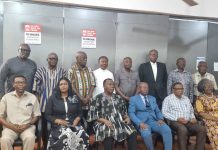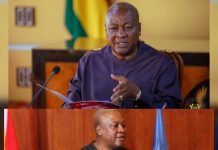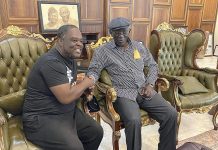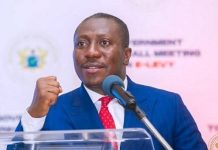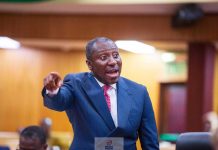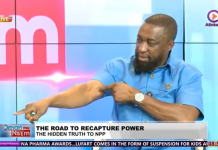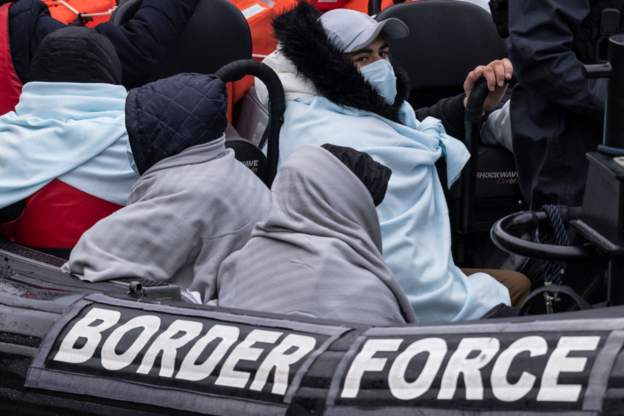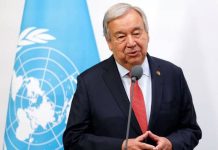The UK Times newspaper quotes unnamed government sources as saying plans are being drawn up to send hundreds of migrants to countries such as Ghana and Rwanda for processing and resettlement.
The Times says this is one of the populist policies being drawn up to save Prime Minister Boris Johnson’s embattled premiership after he admitted attending a drinks party during coronavirus lockdown – something he had previously denied doing.
“Ministers are willing to pay hundreds of millions of pounds a year to any nation willing to take up its offer, although none has done so,” the Times reports.
Separately, the UN has warned against the nationality and borders bill that’s being debated by UK lawmakers, because it says it increases the risk of “serious human rights violations” and does not respect the country’s obligations under international law
UK Borders Bill increases risks of discrimination, human rights violations

UNICEF/GeaiA boy walks through a migrant camp in Calais, northern France, hoping to enter the United Kingdom. (file) 14 January 2022Human Rights
A new bill being debated by lawmakers in the United Kingdom increases the risk of discrimination and “serious human rights violations” and breaches the country’s obligations under international law, five independent UN human rights experts said on Friday.
If adopted, the Nationality and Borders Bill would “seriously undermine the protection of the human rights of trafficked persons, including children; increase risks of exploitation faced by all migrants and asylum seekers; and lead to serious human rights violations”, Siobhán Mullally, the UN Special Rapporteur on Trafficking in Persons, said in a statement.
“The bill fails to acknowledge the Government’s obligation to ensure protection for migrant and asylum-seeking children, and greatly increases risks of Statelessness, in violation of international law”, she added.
Dangers within
Seeking and enjoying asylum is a fundamental human right, according to the UN experts.
However, the bill does not respect the UK’s obligations under international human rights and refugee law, but instead dismantles a core protection of democratic societies and pushes vulnerable people into dangerous situations.
If passed, it could penalize asylum-seekers and refugees, violating the principle of non-punishment in international law and discriminating between categories of asylum seekers, which is contrary to international law, the experts said.
Match words with actions
They also highlighted the specific risks faced by migrant and refugee women.
Under this bill, women who have experienced gender-based violence can be turned away from the UK rather than be allowed to seek and find safety.
“The Government’s repeated public statements on combating trafficking and modern slavery, must be matched by concrete action to ensure equal protection of the law for all victims of trafficking and modern slavery, without discrimination”, underscored the experts.
‘Arbitrary deprivation’
The experts expressed alarm that the bill would increase the possibility of “arbitrary deprivation of citizenship”, which they reminded, has a troubled history rooted in racism and discrimination, and increases the risk of Statelessness.
“The bill instrumentalizes national security concerns, increasing risks of discrimination and of serious human rights violations, in particular against minorities, migrants and refugees”, they spelled out, urging the Government “to reverse these proposed measures”.
Standing up, speaking out
In November, the experts sent a letter to the UK Government, outlining a range of concerns about the bill.
In addition to Ms. Mullally, the other experts who signed the statement were Felipe González Morales, Special Rapporteur on the human rights of migrants, Fionnuala Ní Aoláin, Special Rapporteur on the promotion and protection of human rights while countering terrorism and Tomoya Obokata, Special Rapporteur on contemporary forms of slavery, including its causes and consequences.
Reem Alsalem, Special Rapporteur on violence against women, its causes and consequences also endorsed the statement.
Special Rapporteurs and independent experts are appointed by the Geneva-based UN Human Rights Council to examine and report back on a specific human rights theme or a country situation. The positions are honorary and the experts are not paid for their work.
Source: BBC


